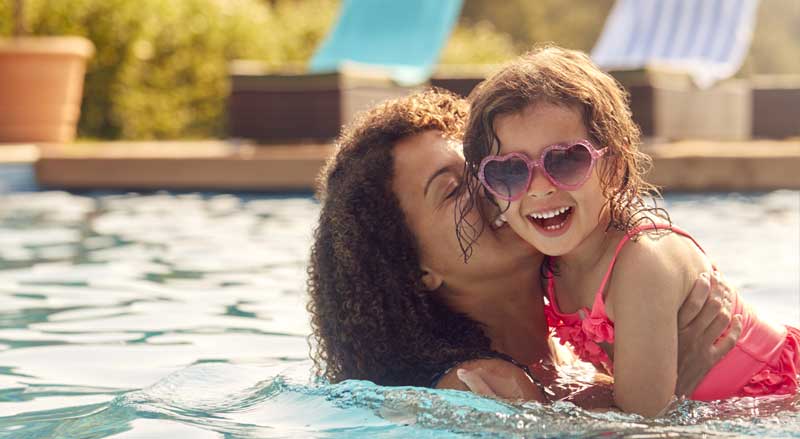The summer will soon be here with its trips to the pool, beach, waterparks, and vacations. There’s a lot to look forward to! Water Safety Awareness Month is here now— in May—to help alert families and individuals to the importance of knowing about water safety and drowning prevention.
Knowing how to help prevent and what to do in the event of a water emergency, can mean the difference between a safe outcome or a tragedy.
National Water Safety Awareness Month provides the perfect opportunity for everyone to assess and update their swimming skills and be reminded about how to stay safe in and around water.
This campaign to promote water safety awareness is coordinated by the Pool & Hot Tub Alliance. It’s supported by:
- The American Red Cross
- The National Drowning Prevention Alliance
- National Recreation and Park Association
- World Waterpark Association
How Water Safety Month Started
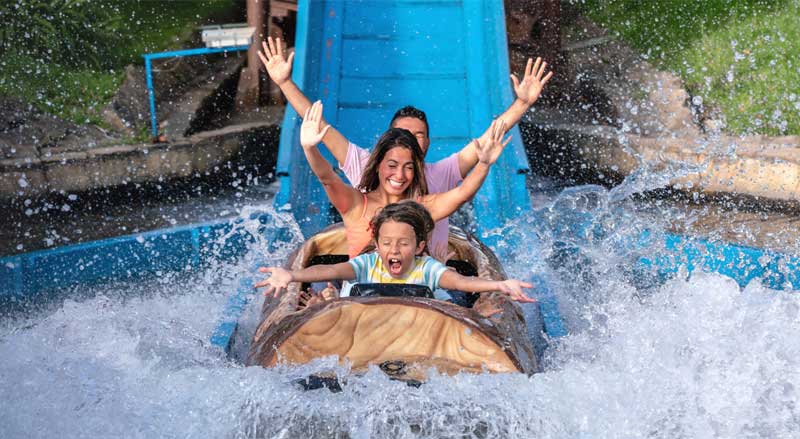
In 2007, May was designated as National Water Safety Month by the National Recreation and Park Association and the World Waterpark Association.
The group was joined by the Pool & Hot Tub Alliance (formerly known as the Association of Pool & Spa Professionals) in 2009, which brought public and backyard pools, and water parks into the safety program.
In 2010, the American Red Cross joined as a key partner, followed by the National Drowning Prevention Alliance in 2023.
What started as a week-long effort has grown into a month-long initiative to reduce drowning tragedies worldwide.
During May, the coalition promotes water safety awareness through:
- Educational programs
- Government proclamations
- Business promotions
- Creating the availability of water safety materials
The organizers of Water Safety Awareness Month stress that water safety practices are important in all settings, including:
- Public and home pools
- Lakes, ponds, rivers, oceans
- Water parks
Babies and young children can drown in as little as an inch or two of water. So, it’s important to know that bathtubs, toilets, and buckets of water can also pose a drowning risk for unsupervised kids—along with pools and large bodies of water.
Drowning Statistics
Statistics show just how dangerous being in and around water can be for both kids and adults.
The Centers for Disease Control and Prevention (CDC) reports, “More children ages 1-4 die from drownings than any other cause of death and it’s the second leading cause of unintentional injury death for children ages 5-14.”
The CDC further states that “an average of 4,083 unintentional drowning deaths occurred each year from 2012-2021.”
Start By Taking the Water Safety Pledge
The organizers of National Water Safety Awareness Month hope everyone will take their pledge this month and make it a priority to learn about water safety—as well as spread the word about the importance of water safety.
The “I’m a Safe Swimmer Pledge” goes like this:
“I pledge to never swim alone.
I pledge to never play or swim near drains or suction fittings.
I pledge to always dive feet first.
I pledge to obey the pool rules.”
You can find a link here to download a kid-friendly “Safe Swimmer Certificate” to reinforce the information in the pledge.
Sign Up Your Kids for Swim Lessons
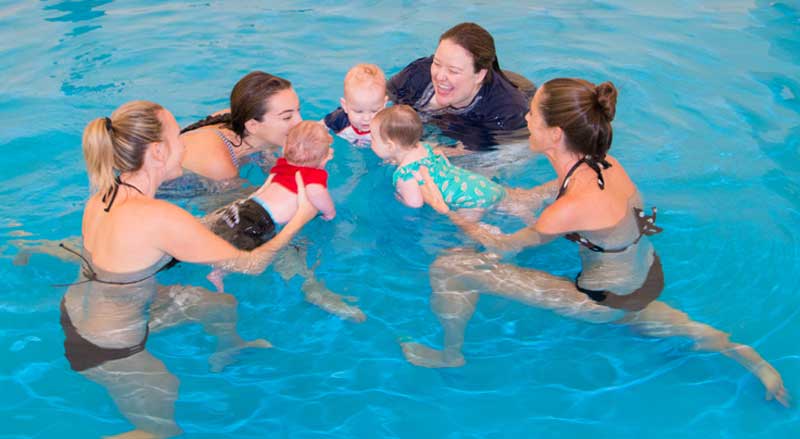
One of the most important ways to help ensure your child’s safety in and around water is to get them enrolled in swim lessons as early as possible.
If you’re planning on taking your kids around water this summer, start swim lessons now.
The American Academy of Pediatrics says that swim lessons can add a layer of protection against drowning for kids as young as one year.
Add that to the fact that swimming is an important life skill your child will have forever, and you’ll begin to see the true value of swim lessons.
Additional benefits of swimming include:
- Improved muscle strength and overall fitness
- Maintenance of cardiovascular fitness
- Improved mood and reduced stress
- Better sleep
Njswim Offers Lessons for Kids of All Ages
At Njswim, we offer swim lessons for kids of all ages including our Water Babies Program that starts at three months old. We follow a “learn to float,” Zen-like philosophy in our approach to teaching swimming.
Students gain a sense of safety and awareness in and around water, which helps them develop proper body position and breath control in the water.
Tips for Staying Safe in the Water
Here are some key tips to help keep your family safe around water.
Keep Your Home Pool Safe for Kids
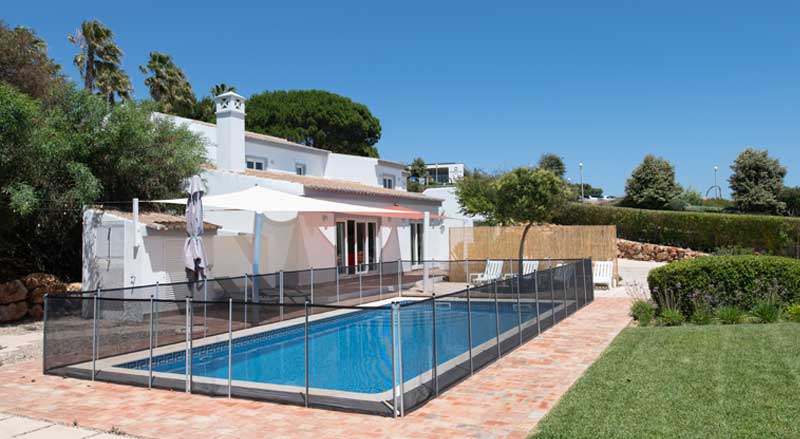
Make sure that your home pool has a fence around it that is at least five feet high and meets local requirements. The fence should have a self-closing, self-latching gate that children cannot open by themselves.
When not in use, make sure to keep toys out of the pool and pool area so that children won’t be tempted to try to enter the pool area.
Also, keep a pole or life rings by the pool in case of a water emergency.
Use the Water Watcher System
If you are with friends and family near or around water, have the group designate a “water watcher” who will be responsible for monitoring the children. After a specific time, the group should appoint a new water watcher and relieve the prior water watcher from their duty.
Drowning Can Be Silent
Don’t think you will hear splashing or calls for help if your child is in trouble in the water. Often, drowning situations are silent.
Be Wary of Flotation Devices
Flotation devices can help your child have fun in the pool. But you should never use them as a substitute for adult supervision. If a young child is in a pool, they should be within arm’s length of a supervising adult.
Learn How to Respond in a Water Emergency
Nobody thinks an emergency will happen, and this false sense of security can keep us from being prepared. Find out how to best respond to a water emergency.
Learn CPR
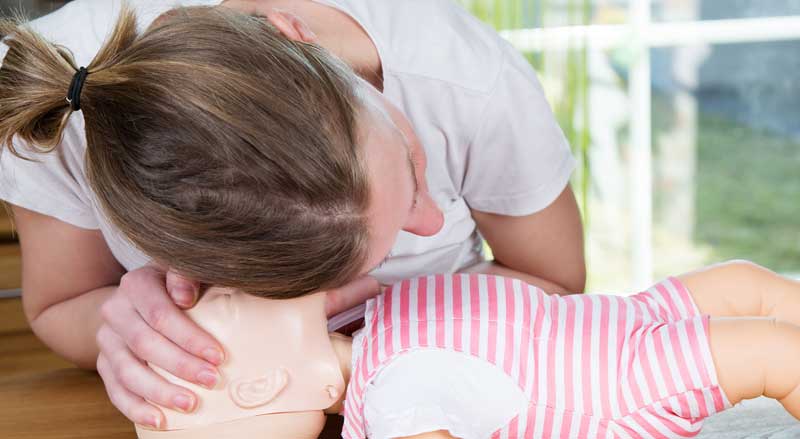
Before the summer arrives, learn how to administer CPR with rescue breaths. The American Red Cross offers in-person and online courses so you can learn what to do in the event of a breathing emergency.
Here’s where you can learn more about water safety skills you should know before summer.
At Njswim, we offer year-round rolling membership for our swim lessons. Contact us for more information.

